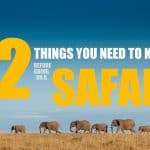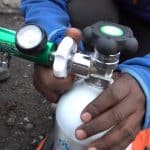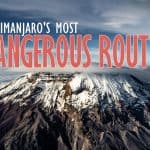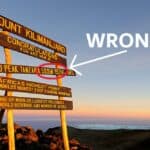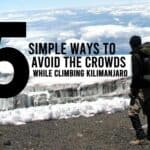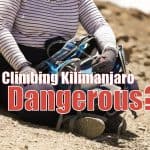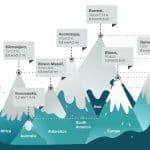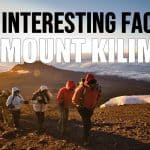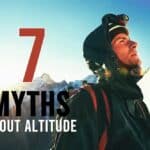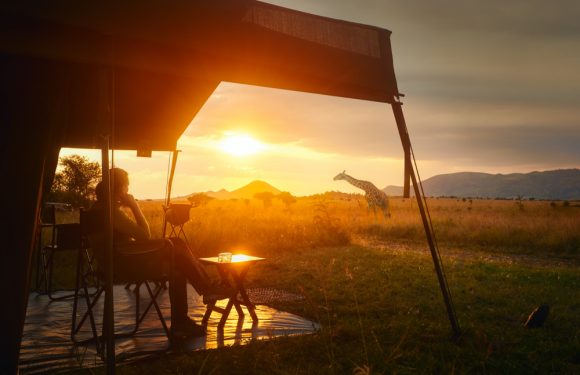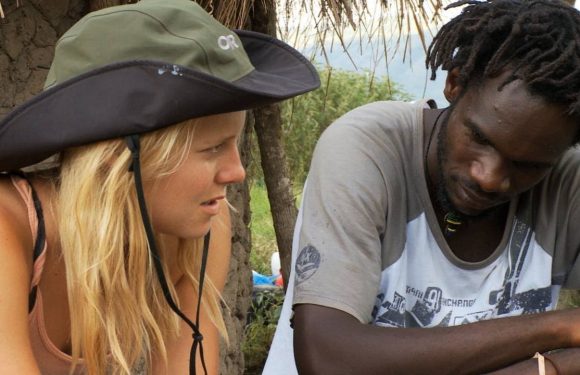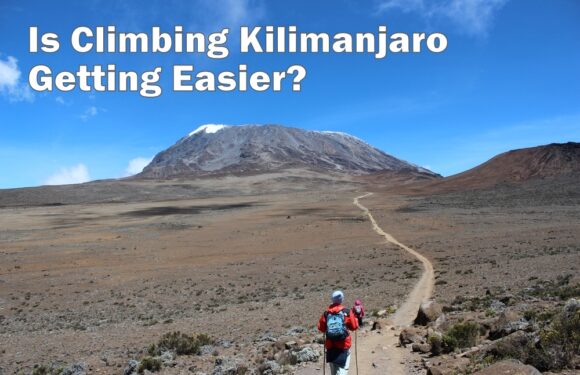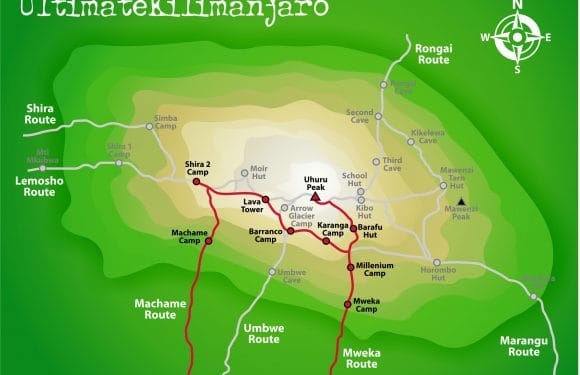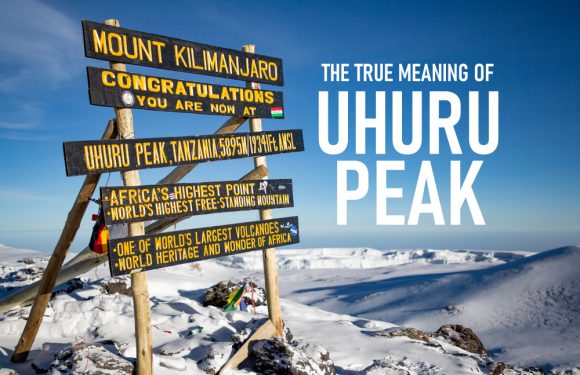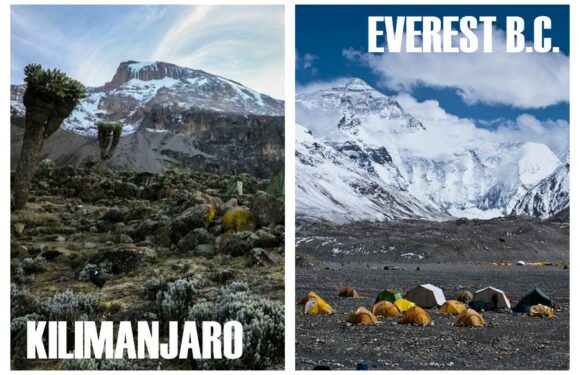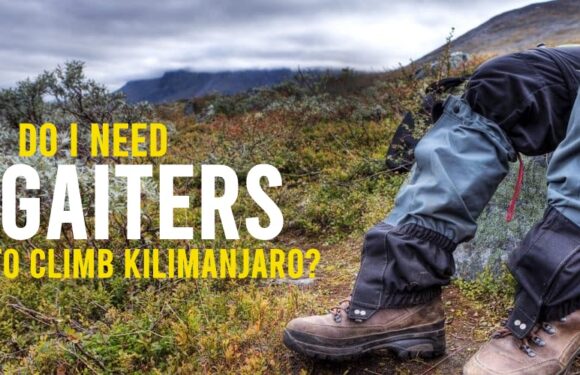Are you on the fence about going on a Kilimanjaro expedition?
People assume that because we are a Kilimanjaro operator we tell everyone to come climb with us.
We don’t.
For some customers, we suggest alternative companies. For others, we suggest a different hike. And some individuals we reject outright.
At Ultimate Kilimanjaro®, we believe it is our duty to be honest in our dealings with every potential client, even if it means not making a sale.
Truthfully, climbing Kilimanjaro is not for everyone.
We like to say that the hardest part about climbing Kilimanjaro is making the decision to do it. Tackling a peak like Kilimanjaro requires a substantial amount of money, time and preparation. Everyone starts from the same point – with a little bit of research to see if it’s something they want to commit to.
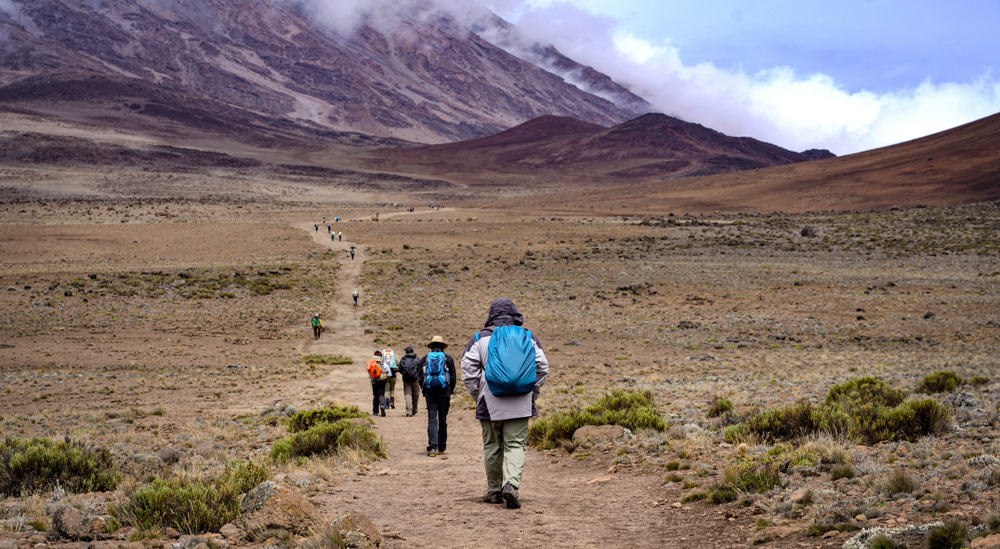
Nearly everyone who climbs with us finds the experience utterly incredible — even life-changing. We have the testimonials to prove it. But there are also those, a small minority fortunately, who don’t enjoy it. How do you know which of these categories you might fall into?
Here are 10 reasons why you shouldn’t climb Kilimanjaro.
1. You aren’t all that excited about doing it.

If your friend is begging you to go, and you are begrudgingly agreeing to the trip, think again. From gathering all the gear, to planning the logistics, to training… the entire process is quite the project that lasts many months. Most people book four to six months in advance to give themselves time to get ready.
If you aren’t truly interested and excited about the prospect of climbing Africa’s highest peak, your preparation will feel like work instead of fun. And once you get on the mountain, it’s unlikely you will find much motivation to keep going when things get tough.
2. You hate camping and the outdoors.
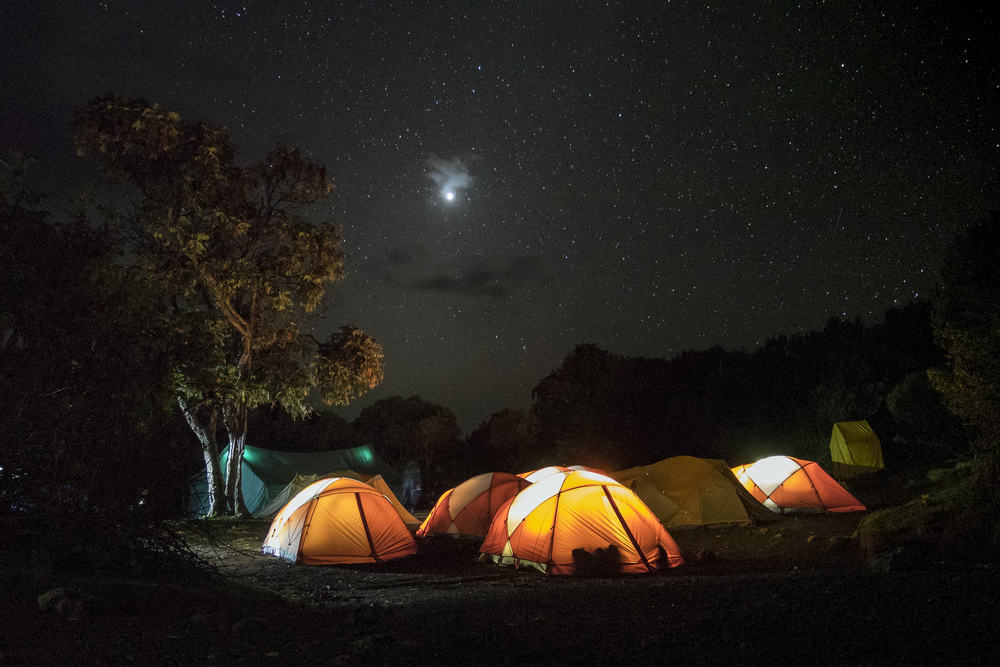
This one is kind of obvious. Kilimanjaro is a mountain – it is outdoors. We will be exploring nature on foot. We will be sleeping in tents. We won’t have modern amenities. And this will go on for many days.
Now that doesn’t mean city folk shouldn’t climb Kilimanjaro. Quite the opposite. We have plenty of urban dwellers who come for the adventure. But if the thought of spending time in the wilderness brings revulsion instead of excitement, then it might be best to reconsider. Mount Kilimanjaro might be the wrong place for a vacation.
3. You aren’t in shape — and you’re unwilling to train.

19,340 feet is a seriously high altitude. The last day’s hike from base camp to the summit is a 4,000 foot elevation gain, followed by a 9,000 foot descent in a low oxygen environment. No one does this easily. Even people who backpack regularly find it challenging. So for the layman, it is a necessity to train for the climb. While most people understand this and prepare accordingly for the physical effort, some won’t.
If you know you won’t bother training at all, then climbing Kilimanjaro isn’t for you. Because chances are you will be slow, you may become sick, and you won’t reach the summit. You must take the mountain seriously.
4. You don’t have much time to do it.
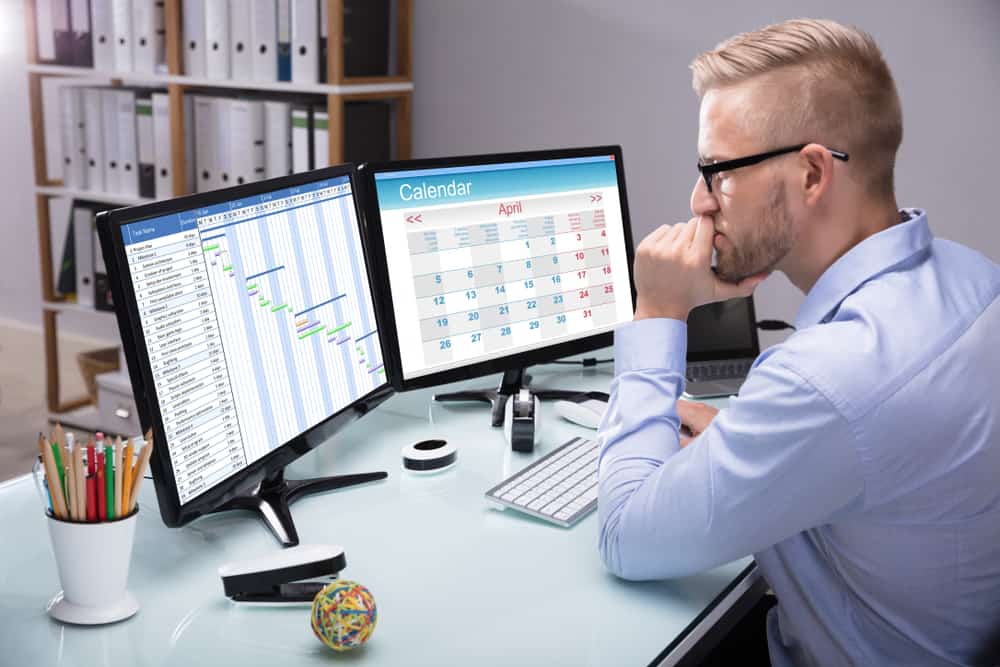
Kilimanjaro can be climbed on one of the six established routes in anywhere from five days to nine days. We strongly recommend at least seven days, but eight or nine days is even better. Each day on the mountain increases the summit success rate. But some people only have a short time window for the trip, either because of their work schedule at home or because they are trying to squeeze in the climb while visiting the region for other matters. For these people, we encourage them to try and find a way to add another day or two if possible.
If you don’t have enough time to climb Kilimanjaro like you want to, come back when you do have the time. It is not only safer but will be more enjoyable.
5. You don’t get along well with others.

Picturing your time on the mountain as a solo explorer? You’re going to be disappointed. Climbing Kilimanjaro is a team effort. You will have guides and a support staff. Communication with your crew is paramount.
You’ll likely be part of a group of climbers from all parts of the world with whom you will spend many hours over consecutive days. And there will be more people on the route whom you will encounter throughout the trip. If you are someone who dislikes human interaction or has difficulty dealing with others at home, it’s going to be even harder on Kilimanjaro given the added stress of the circumstances around you. The mountain might be the wrong place for you to be.
6. You don’t have (and won’t have) the right gear.
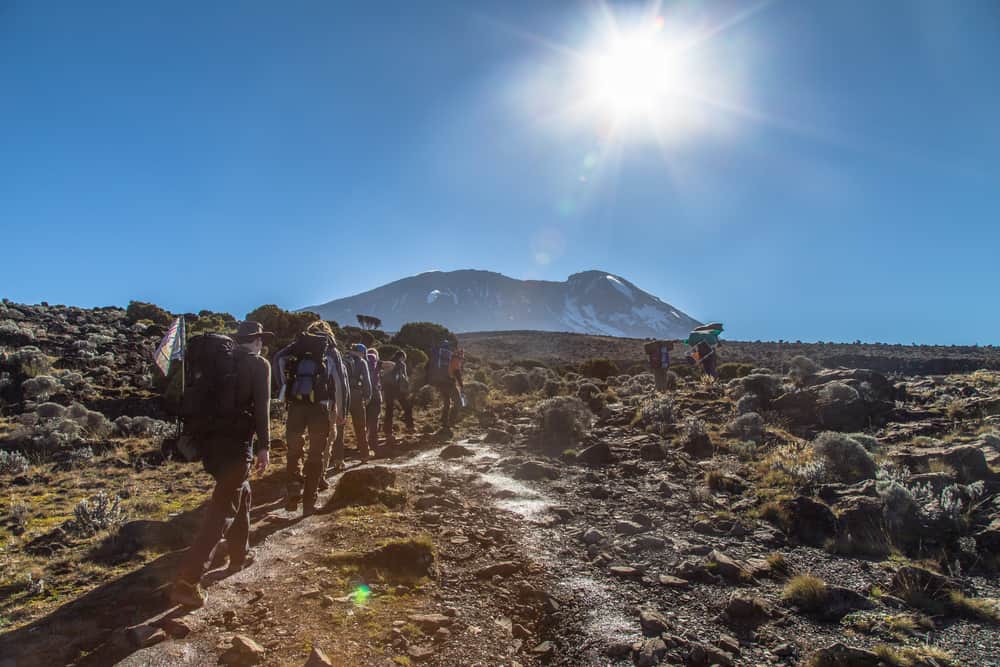
The gear list to climb Kilimanjaro is not short. Because temperatures can range from sweaty hot to bitter cold, you’re going to need the appropriate gear for the potentially huge temperature variances. Most important are the technical layers that will keep you warm and dry.
Coming to the mountain without the required gear puts you in danger of hypothermia and frostbite. It is crucial to be prepared for extreme weather. If you will not have the right gear, stay away.
7. You don’t do well at altitude.
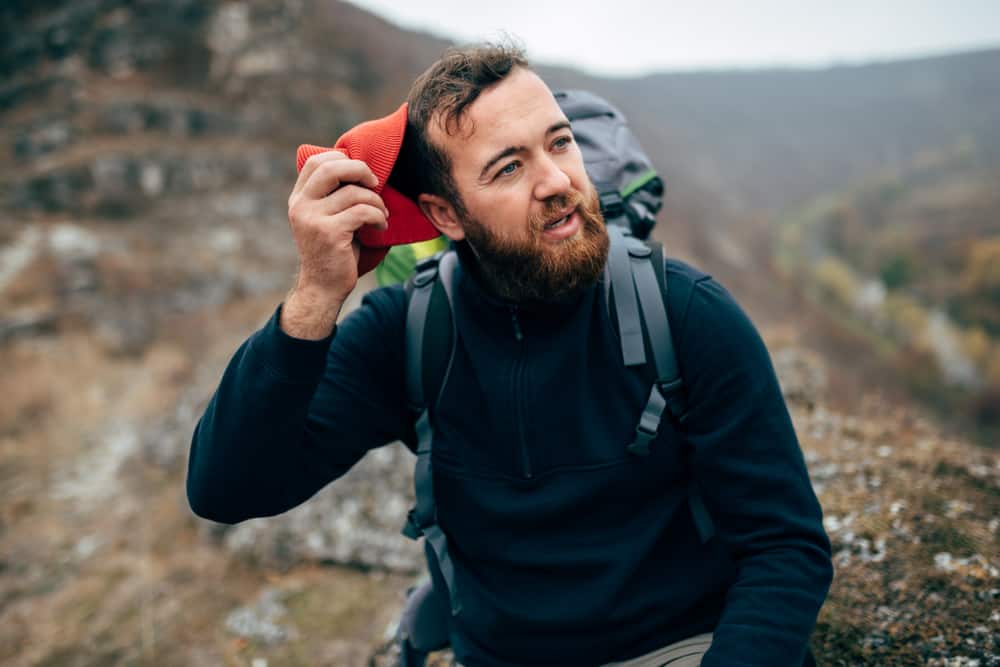
High altitude can cause problems for a segment of the population. It’s the number one reason that climbers are forced to descend. Most people who climb Kilimanjaro have never been at altitudes above 15,000 feet (the elevation of high camp). Everyone reacts differently. So it is very hard to predict how well one will acclimatize.
If you have a history of high altitude illness, climbing Kilimanjaro poses a risk. However, note that even if you had altitude sickness symptoms before doesn’t mean you will definitely get them again. A lot of factors come into play, especially the rate of ascent and time spent at elevation. A slow pace and taking rest days increases the safety dramatically.
8. You don’t have enough money to hire a good guide service.

There are hundreds of operators on the mountain. Pricing spans all over the board. While high prices aren’t a definitive sign of a quality guide company, low pricing is a sure sign of a poor quality outfit.
The fact is that a professionally run climb can’t be funded cheaply. Booking with a budget operator can end up costing you more than money later. Don’t trust your health to just anyone. Who you climb with matters.
Your guide can save your life. It happens more than you may think. If you don’t have the finances to book with a reputable Kilimanjaro company, put a hold on your plans for now and make the arrangements when you have more money to put towards your trip.
9. You can’t unplug for a week.
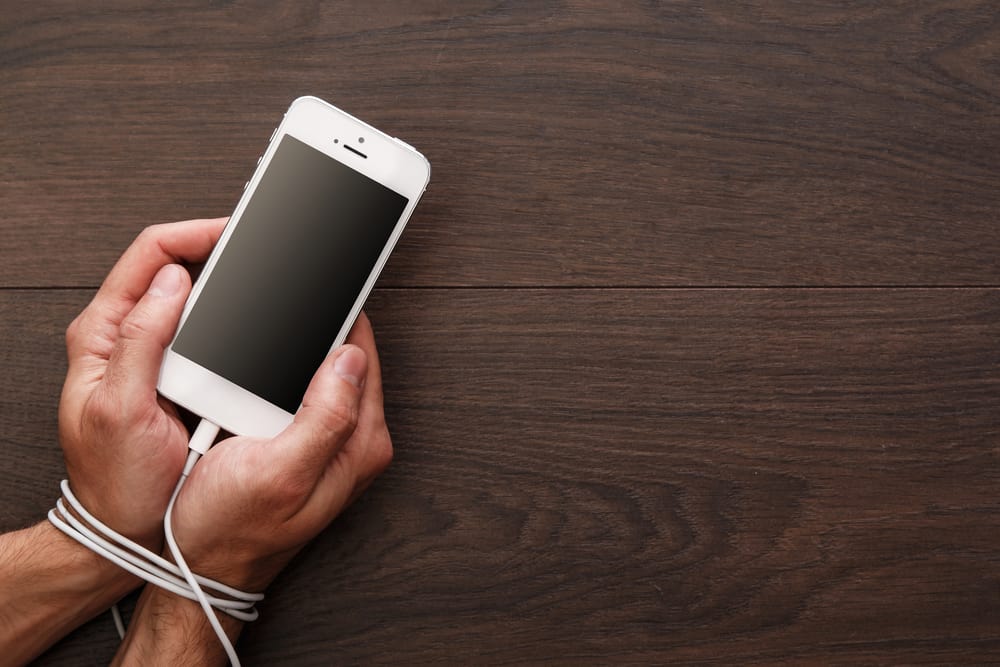
On the mountain, you’re in a remote area with no electricity, spotty wifi and barely a cell signal.
So what does this mean? You’re going to have to unplug from the world for the length of the expedition. You might not know what’s going on at home, at work, or in the world. People may not be able to get a hold of you. And you have to be OK with that. Conversely, many people look forward to having quiet time, away from the constant barrage of communication these days.
If it is imperative that you be available for others at every moment, don’t come. Or bring a satellite phone, laptop and power generator (we’re being sarcastic).
10. You tend to quit pretty easily.

Climbing Kilimanjaro is going to test your comfort zone. From camping to daily hikes, from enduring cold to altitude sickness, there are going to be times when mental fortitude is required to get through it.
It is not uncommon for climbers to doubt their ability or question their will when the going gets tough. Everyone takes the same steps on the way to the summit. Those who can overcome hardships stand a great chance of succeeding. But those who cannot tolerate the discomfort will likely be bested by the mountain. If you have a habit of giving up quickly, you’ll probably give up on the mountain too.
If these 10 reasons don’t apply to you, then you are the RIGHT kind of person to climb Kilimanjaro and succeed! We would love to have you join one of our trips in the near future. Take a look at our upcoming dates and prices here.
__________
See 12 Things You Need to Know Before Climbing Kilimanjaro
See Can an Unfit Person Climb Mount Kilimanjaro?
See Overcoming Fears to Climbing Kilimanjaro – Getting to “YES”















